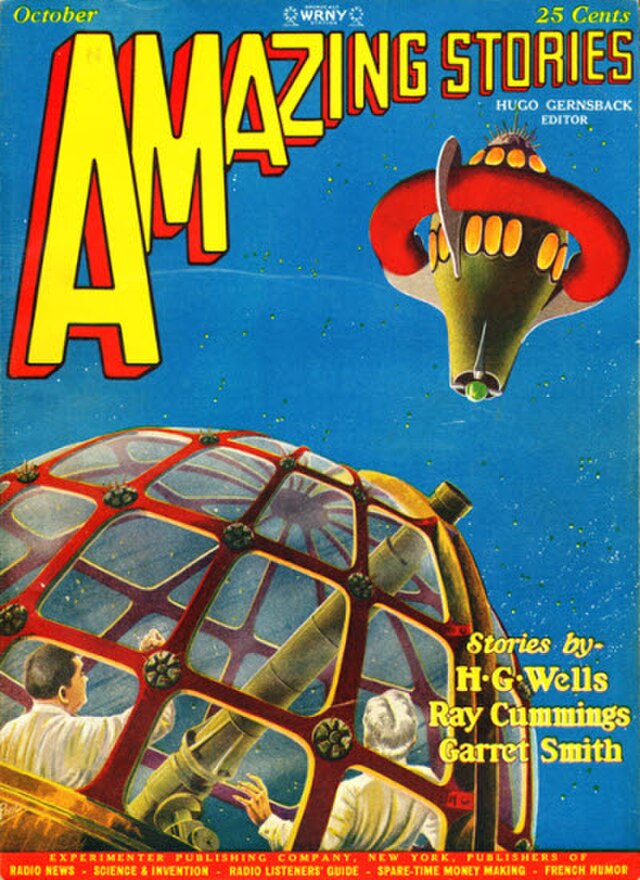
The Grandfather Paradox
There is a concept known as the butterfly effect, the idea that small changes such as the flapping of a butterfly’s wings can lead to dramatic future events. Then there is the Grandfather Paradox, an argument presented against the possibility of time travel; if a person was able to go back in time and make changes that resulted in their grandfather not bearing children, then that person would not come into future existence.
This concept has been explored in literature and film, perhaps famously in “Back to the Future”, where the protagonist Marty inadvertently disrupts his parents’ relationship before they were married, but it has been mentioned in written stories from as early as the 1920s within the American science fiction magazine ‘Amazing Stories’ (such as above).
Theoretical Implications
Einstein’s theory of relativity suggests that space and time are actually one single entity. Within the field of general relativity, mathematician Kurt Gödel came up with the idea of paths that could transcend this space-time entity, returning to a starting point without causing disruption. He called these paths closed timelike curves or CTCs.
The physicist Igor Novikov attempted to resolve the paradox with his theory of multiple universes. He suggested that if a time traveller did go back in time, this would create a separate, alternative reality which would leave the original branch of reality unaffected. Another alternative suggestion was that the self-consistency principle which suggests that any attempt to change the past would be stifled in order to maintain consistency of events and preserve the paradox.
Philosophical Implications Of The Grandfather Paradox
The principle of self-consistency brings up another important issue, do we really have free will, or are our life decisions already predetermined? If we are unable to influence the choices that we have previously made, this suggests the existence of a deterministic universe that fulfils a self-consistent loop. These arguments challenge the nature of our concept of a continuous timeline. Temporal Ontology considers that only the present exists, and that the past and the future are non-linear in our concept of time.
Ethical Implications
If time travel were possible, it would raise important questions about the implications of making choices to the past and altering future events. Disrupting historical events, even with good intentions, could lead to future unforeseen events that could have negative connotations. It could also lead to a sense of powerlessness, where individuals and societies feel they have no control over their own destinies.